- Home
- Scott Westerfeld
Mirror's Edge Page 11
Mirror's Edge Read online
Page 11
There’s nothing to hang on to on this smooth slant of stone. The drop to the barrier isn’t far, but I’d rather not get any closer to the buried waste.
I scoot in a little farther, but still can’t get the shot.
“Riggs. Can you aim your light at—”
My voice drops away. I’m sliding.
I drop the camera, clawing for purchase. My fingernails grip the stone for a moment, but then I’m skidding again.
“Col!” I cry.
They reach for me, grabbing a handful of my shirt. But it’s too late—my momentum tears the fabric, an awful sound, like a knife cutting muscle and skin.
I stop trying to arrest my fall, bending my knees for impact. And then I’m falling into the darkness …
“Frey!” Col calls.
I land hard, the jolt driving the breath from me. Rolling on stone, I find myself face-to-face with the pictures of dying stick figures.
Lights flash around me—the others are trying to scramble down.
“Stay there!” I shout, pushing myself to my feet. My left ankle twinges, but nothing’s broken.
My foot brushes something, which rattles down the slanted permacrete. It’s my safety meter, bouncing across the raised shapes of hieroglyphics.
It glows bright in the darkness, still yellow.
“It’s okay,” I call up. “It’s the same down here as up …”
The safety meter jerks to a stop—captured by a defect in the permacrete barrier, a crack no more than a centimeter wide.
The light turns red.
I freeze—as if a monster is lurking in the dark.
But it doesn’t matter how still I am. The radiation is leaking from that fissure in the floor, passing through my skin into my cells, my blood, my bones.
“You okay?” Col shouts down.
I stare at my hands, like they might be glowing. But that’s silly. The meter didn’t turn red until it landed in the crack.
Still, this is a small chamber, the ceiling only a few meters above my head. Who knows how long the radiation has been building up in the air I’m breathing.
“I’m fine. Just help me out.”
Col and Riggs look at each other, but all our climbing gear is back at camp. The ledge isn’t close enough for me to jump.
Then I see another way up. The far wall of the chamber is dotted with cracks in the stone, big enough for handholds. With time and patience, the climb would be simple.
But going slow isn’t an option. Not with that open fissure between me and the old nuclear fuel, still glowing red with the safety meter’s light.
With enough of a running start, I can parkour myself up—
Which means jumping over the fissure.
Is radiation like a death ray, shining up at whatever crosses that opening? Or is it more like smoke, coiling around me as I stand here hesitating?
Col sticks an arm through the gap. “Jump! We can grab you!”
“Forget it. I might drag you down. My meter’s red.”
“What?”
“Just stay back,” I say clearly. “Give me room.”
A moment later, both of them pull away, leaving a clear sliver of sky showing through the gap. In the rosy light of sunset, I spot my wafer cam where it fell on the permacrete.
I snatch it up and take a quick photo of the serial number. Then I slip the cam in a pocket and scan at the fractures in the wall, imagining every step of my ascent.
Right foot in that cleft, left foot on that outthrust of rock. Then grab the ridge along the top, and haul myself out …
One slip and I’ll roll back down across the split in the barrier. My safety meter has started beeping there, an awful and urgent sound in the darkness.
Jump, jump, jump.
I reach for Confidence, but my feels are still gone.
With a run, I launch myself across the glowing crack and at the chamber wall. One hiking shoe grips the stone, then the other. My arms stretch out, fingers grasping for the rocky shelf near the chamber’s ceiling.
Pain flashes through my palms—the ledge is sharp, like a stone knife cutting my skin. My feet scramble against the wall, fingers slipping …
Below me, the safety meter beeps.
Fall, fall, fall.
The sky shining through the gap goes dark, Col’s hand reaching out to grab my left wrist. My fingers slip from the ledge, but my boots grip the stone, and I start to pull myself up …
With a combat scream on my lips, I strain every limb, and together we pull me up and out into the soft light of dusk.
I roll onto my back, facing a red sky framed by the crater walls. My knees are scraped, my palms bleeding. My shirt is torn.
But I’m out of the poisoned chamber, with battle frenzy sharp and perfect in my veins.
I look up at the others, laughing. “Thought I told you to stay out of my way.”
“Yeah,” Col says. “And we told you nuclear waste was dangerous.”
My elation fades a little. “So … am I dead?”
He pulls out the scanner, testing me from head to toe. It clicks a little, but Col doesn’t look upset.
Until he gets to my feet, and the scanner emits a wild clatter of sounds, like hail on a hard roof.
“Get those shoes off—now!” Col cries. When I reach down, he grabs my hand. “Don’t touch them!”
I obey, kicking the boots off. Riggs grabs me under my armpits and drags me away from them. Col kicks the boots down into the fissure.
“How bad?” I ask.
“I don’t know.” Col hesitates, looking at the scanner instead of me. “It’ll be fine … once we get you to a city.”
“A city.” So I need serious medical care.
I stare down at myself, and a familiar unsettledness passes through me. I’ve barely gotten used to my new height, my new skin. This new face.
And now my body feels wrong again.
“What are the symptoms?”
“You’ll be fine for another day at least.” His voice quivers. “Maybe a lot longer. Maybe you’re okay.”
I look at the scanner. “Doesn’t that thing work?”
“Yes, but radiation’s unpredictable.” His expression looks more helpless than uncertain, and suddenly I want his old face back. Not Arav—Col. “The soles of your boots absorbed most of it.”
The stone under my bare feet feels warm, as if the spent fuel buried beneath us is baking up through the earth.
“How am I supposed to hike now?” My only spare pair of shoes is back at camp, almost a day’s hike away.
“We’ll borrow some,” Col says. “At the meeting, when we tell the Futures what these safety checks are really about.”
Silence settles over us. Our task tonight just got much harder. We not only have to convince the Futures to help us, but that their city has risked poisoning them.
I look up at the ledge of the crater.
A handful of faces are up there still, peering down, wondering how many merits we’re making for the clique.
If even one of them doubts our story, the worst could happen.
“We should get moving,” I say. “The meeting starts at sunset.”
“Sure,” Riggs says. “But before we hit the dust again, I have a question.”
We wait for the rest, but Riggs doesn’t speak. She’s looking me up and down, as if something’s different about me now.
“What is it?” Col asks.
Riggs turns to him. “When Rafia fell down that hole, why did you call her Frey?”
“I called her what?” Col asks.
Riggs’s words come out steady and careful. “When she fell, you called her by name. But you didn’t say Rafia or Islyn—you said Frey.”
Col glances at me, uncertain. But I can’t help. Riggs heard what she heard.
“Yeah, Col,” I say. “What was that about?”
He shrugs. “In the early days of the war, Frey fought alongside me. And then Rafia showed up, with the same face—sometimes I get them c
onfused.”
“But she’s not wearing her sister’s face now,” Riggs says.
“That only makes it trickier.” Col gives us a dry laugh. “It’s weird, having the first daughter of Shreve out here on a mission.”
Riggs stands there, her gaze jumping back and forth between us. When her eyes come to rest on me, it’s like they’re trying to pry beneath my skin.
But it’s too much for her to grasp all at once. Because then she’d have to realize that person she knows as Boss Frey is really Rafia.
“Just call her Islyn from now on,” Riggs says. “That’s why I didn’t change my name—one less thing to remember.”
“Sure,” Col says. “You know what would help that, Islyn? If you don’t fall down any more radioactive holes.”
As the sun sets, over a hundred Futures meet in the wind tunnel.
They’re abuzz with stories—hard climbs into craters, close scrapes with crumbling rocks, and meters flashing yellow. Apparently, two more ancient storage sites have been discovered.
The thought makes my skin crawl. My father will soon have all the nuclear waste he could possibly want.
The meeting starts with an older Future giving a history of the wind tunnel—how the fans were repaired, how this became the clique’s meetup spot. There’s a moment of respectful silence, because the new construction will raze the wind tunnel to the ground.
What the Futures don’t realize is that this whole area will be contaminated, maybe for centuries.
While the meeting drags on, I try not to look at Riggs. But I can sense her gaze on me. She must still be wondering why Col called me Frey. It can only be so long before she guesses the truth.
Luckily, there are more important things for her to worry about.
The stage passes to Chulhee. He looks tired, a little sunburned from the long hike here. But once the group’s attention falls on him, it’s easy to see how he founded Future, convincing all these people to believe in something as sense-missing as their own historic destinies.
His voice rises above the whine of the fans, echoing from the ancient walls of the tunnel, filled with the confidence that he will be remembered for all time.
“Greetings, people of the Future. We make our own stories.”
He waits for them to repeat the words back to him, then continues.
“It’s sad, this last meetup here in this hallowed and secret place. But it doesn’t have to be an unhappy ending. Tomorrow night, Future has the chance to be part of something more important than our clique—the end of an era.”
He pauses, letting his words stir the crowd for a moment. They don’t know what he means yet, but they can tell it’s bigger than merits and love triangles.
“I’m talking about something so historic that if I told you myself, you wouldn’t believe me. So I’ll let someone else explain—someone from outside our city.”
His eyes light up, as bright as in the Stone Passage.
And they fall on me.
When Chulhee told us that we had to convince the clique to join us ourselves, I thought he’d give me more of an introduction.
I also didn’t think I’d be barefoot, radioactive, and wearing a torn shirt.
But the crowd is excited. In Shreve, the fact that we’re from another city already makes us mysterious, dangerous.
I’ll need all the help I can get—my big sister was always perfection at giving speeches, cutting ribbons, and charming crowds. This performance has to be magnificent to convince her that I’m Rafi.
“You’ll do great,” Col says, giving my hand a squeeze.
For the first time since we arrived in Shreve, I channel my sister, straightening my posture, wearing my torn hiking outfit like it’s a ball gown.
The crowd parts for me, expectantly silent as I stride up to the stage …
Which is a neat stack of the carbon bricks. As my bare feet step onto them, I remember Col’s warning not to touch them.
But everyone’s eyes are on me. If I jump off this platform like a littlie from hot pavement, my credibility will be shot.
Surely a few minutes of standing on these bricks can’t make my radiation poisoning worse.
Rafi always said that the best speech was a short one.
It takes longer than usual for my sister’s posture to settle into this new body. But the grooves in my mind are deep, and soon I feel her imperious expression on my new face.
“Chulhee’s right,” I project above the whine of the fans. “My friends and I are here to make history. We’re freedom fighters, part of an alliance of rebel crews and foreign cities, poised to strike a blow against the dictator of Shreve.”
I pause, waiting for a reaction from the crowd. But they’re silent, looking a little confused. I’ve rushed this.
Maybe if I make it personal.
My voice softens. “An old friend of mine, a rebel boss, is here in prison. We plan to save him. But not in some secret operation no one ever hears about. The free cities are helping us, with a diversionary attack that will light up the skies!”
Whispers move through the crowd. The energy feeds back to me, and I start to pace back and forth, half forgetting that I’m barefoot on a pile of radioactive bricks.
The spirit of Rafi starts to move in me again.
“You can help us by creating a more subtle diversion. Just do what you’re best at—drama. Make Security notice you so they have less chance of noticing us.”
The mention of Security brings looks of concern.
I hold up my hands. “Don’t worry, though. You won’t be abandoned, like you were after the Revelation. This regime won’t be around long enough to punish you for anything you do tomorrow night—the free cities have promised me that. Everything here will change. History will be made.”
For a moment, there’s no sound except the steady drone of the fans. Just like Rafi taught me, I let the crowd absorb my words.
Then a girl steps forward, a hand raised. When I nod to her, she speaks in a hesitant voice.
“So when things change here, they’re going to get rid of the dust?”
“Of course,” I say. “We’ll make Shreve a free city.”
“Why would we want that?” the girl asks. “Without dust, nothing we do will ever be historic again.”
I stare at her, remembering Zura saying that the Futures didn’t live in the real world. Maybe some of them don’t.
So I humor the girl. “It’ll take some getting used to. Freedom can be strange at first.”
“Freedom has a way of destroying things,” she says.
The crowd murmurs its agreement.
The old words from Tally Youngblood have ignited something in the Futures.
It’s not just the girl. Lots of them are worried about their lives being lost in the air.
“You don’t need the dust,” I say. “No one has to be watching your life for it to mean something. In a free city, you can be yourselves.”
“This is ourselves,” she says, growing in confidence. “Being historic is who we are, and you want to take that away.”
She’s right—we want to change everything here. Their dreams will fall apart once freedom comes.
I have to switch gears.
“You can still record yourselves, of course.”
“That isn’t the same,” a boy speaks up. “If you’re just another kid with a cam, the historians know you’re meta-Heisenberging. The dust makes us real.”
That’s not something I can argue with, because it doesn’t make sense to me.
I scan the crowd for Chulhee, hoping he can help. But he’s way in the back, his arms around Ran and Sara. All three of them gaze at me smugly, as if pleased with how things are going.
That’s when I realize—the founders of Future must also love the dust.
Did they invite us here to set us up? If just one person reports us, the mission will fail spectacularly, leaving my father’s regime stronger. The founders of Future get what they want, without going down i
n history as snitches for a dictator.
I glance at Col again. He makes a fist—stay strong.
It’s not that easy. I don’t know how to win this argument, and my feet are itching to leave this poisoned stage.
Rafi could do this, but I’m not her.
It’s a nightmare I had a hundred times as a littlie—pretending to be my sister, and the crowd seeing through me. Turning on me.
Then Riggs steps forward.
“So what does that mean, anyway?” she asks the girl. “Being historic?”
“It means being remembered,” the girl says carefully, as if reciting from a textbook. “So that even a thousand years from now, you’re alive somehow.”
Riggs jumps onto the stage next to me, wearing a grin.
“Sure, I get it,” she says to the crowd. “Us rebels want to be remembered too. We get killed in battle all the time. And nobody wants to die and be forgotten, right?”
The eyes of the crowd lock onto Riggs. Suddenly, her rebel swagger is showing, and I realize how she’s been hiding her charisma, her bluster. She was a boss, after all, until my sister came along.
And she’s not talking about mere drama, but the reality of war and revolution.
Historic stuff, compared to love triangles.
Riggs gives me a pat on the back.
I leave the stage to her and stand next to Col. He puts a comforting arm around me.
“When we rebels die,” she says, “our friends remember us. People we fought beside to save the planet, closer than blood or marriage. That’s how rebels pass into history. We don’t need dust—we have crew.”
She gives them a long look, weighing the Futures with her eyes. I can feel them cringing a little under her judgment.
Then she shrugs. “But, hey, you’ve got your own way. You’ve taken what this sad excuse for a city gives you and made something of your own. But unless you want to go down in history as fools, you have to remember one thing …”
Riggs leans down and lifts up one of the carbon bricks with a flourish.
“You might love the dust,” she says. “But the dust doesn’t love you.”
The Futures stare at the black brick, spellbound, utterly confused.
Col steps forward, handing Riggs the scanner. She kneels to wave it across the pile, letting the click of the radiation reading ring out across the room.

 Uglies
Uglies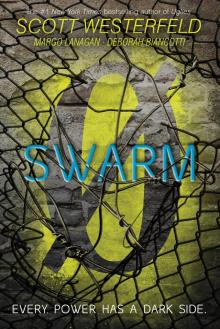 Swarm
Swarm Pretties
Pretties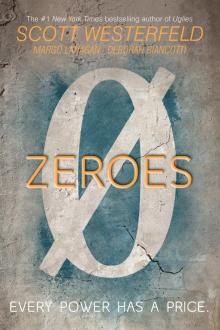 Zeroes
Zeroes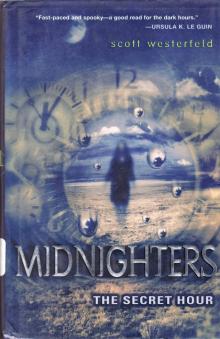 The Secret Hour
The Secret Hour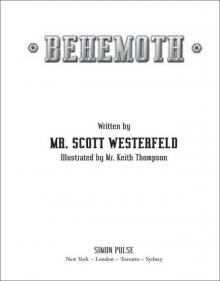 Behemoth
Behemoth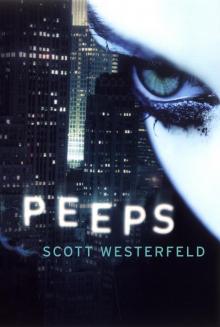 Peeps
Peeps Specials
Specials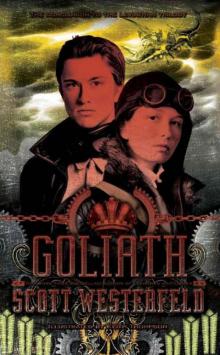 Goliath
Goliath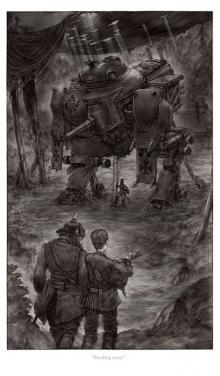 Leviathan
Leviathan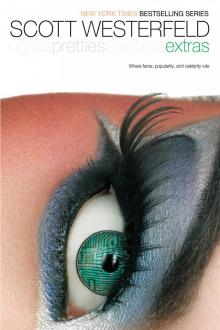 Extras
Extras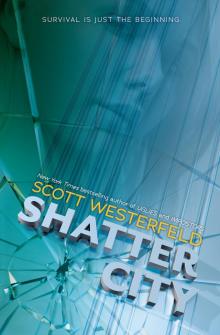 Shatter City
Shatter City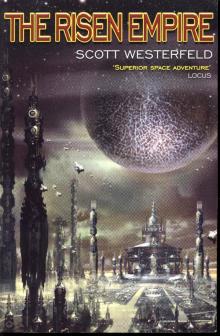 The Risen Empire
The Risen Empire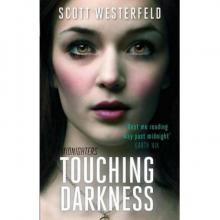 Touching Darkness
Touching Darkness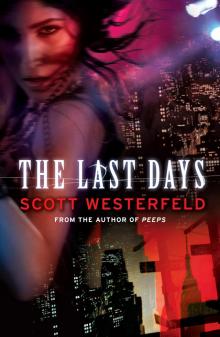 The Last Days
The Last Days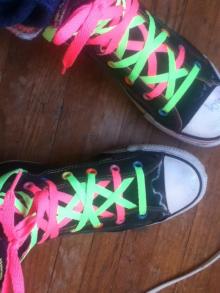 So Yesterday
So Yesterday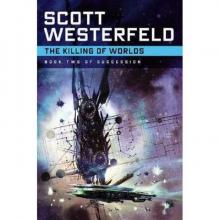 The Killing of Worlds
The Killing of Worlds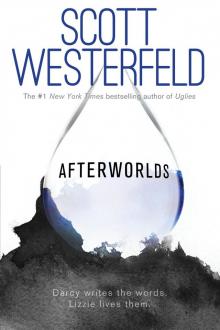 Afterworlds
Afterworlds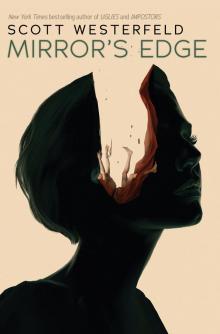 Mirror's Edge
Mirror's Edge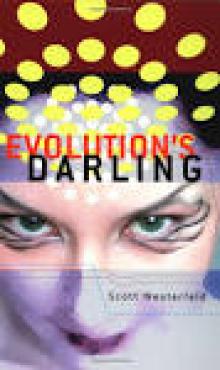 Evolution's Darling
Evolution's Darling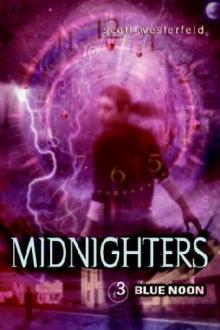 Blue Noon m-3
Blue Noon m-3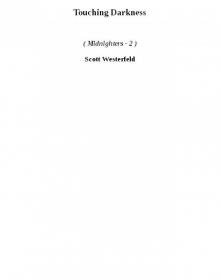 Touching Darkness m-2
Touching Darkness m-2 Impostors
Impostors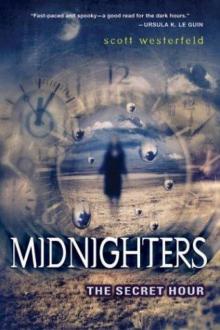 The Secret Hour m-1
The Secret Hour m-1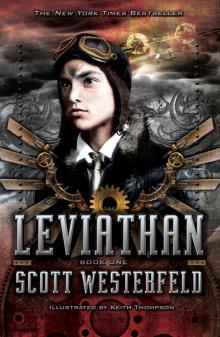 Leviathan 01 - Leviathan
Leviathan 01 - Leviathan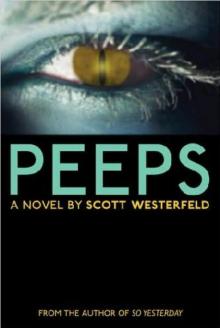 Peeps p-1
Peeps p-1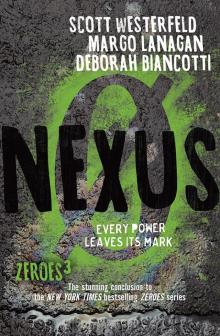 Nexus
Nexus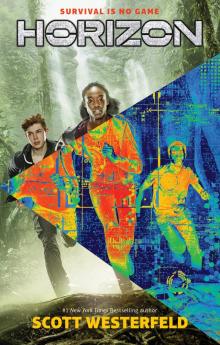 Horizon
Horizon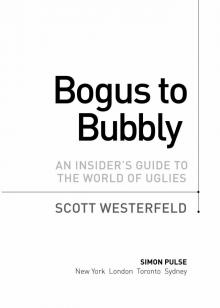 Bogus to Bubbly
Bogus to Bubbly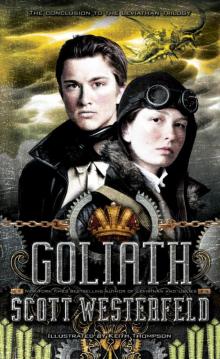 Goliath l-3
Goliath l-3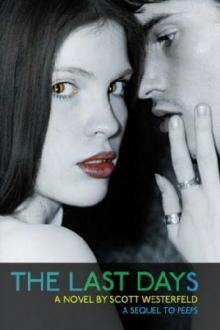 The Last Days p-2
The Last Days p-2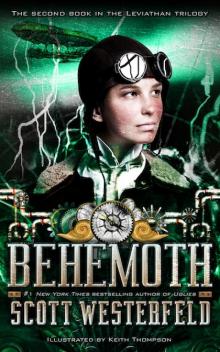 Behemoth l-2
Behemoth l-2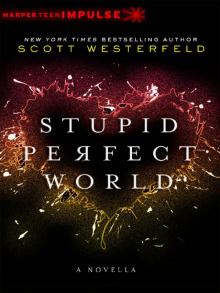 Stupid Perfect World
Stupid Perfect World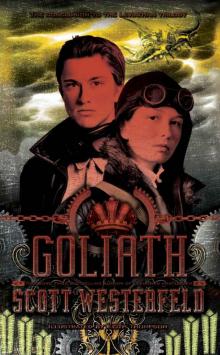 Goliath (Leviathan Trilogy)
Goliath (Leviathan Trilogy)